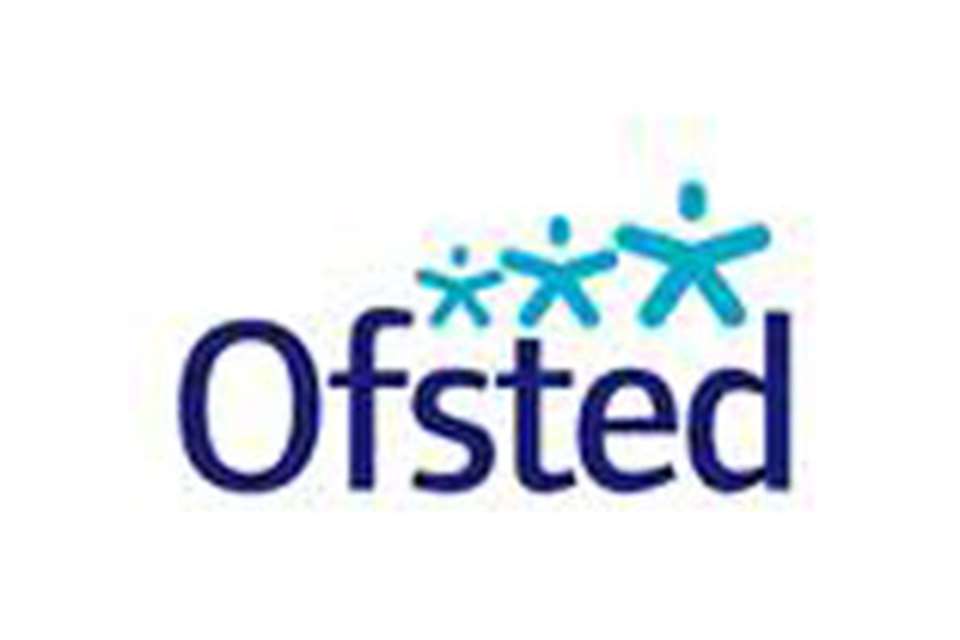Ofsted duo seek to reassure sector
Monday, May 19, 2014
The new early years heads are keen to listen, they tell Catherine Gaunt in an exclusive interview.

It's been a busy time for Ofsted early years director Nick Hudson and his deputy Gill Jones. Both are only a few months into their roles and, as I meet them just after the launch of Ofsted's first annual report on early years, they are keen to emphasise their willingness to listen to the sector.
Mr Hudson has attended Ofsted Big Conversation meetings in the North East and the Yorkshire and Humber regions, where he remains regional director. Asked how they see the Big Conversation developing, he says, 'We want to continue the engagement. We just want genuine dialogue where we can pursue the issues.
'We're going to get to an interesting point soon. The sector will want to see some progress and we, similarly, will say, "we've heard all that before". 'If it's about settings that have had inspections triggered by a complaint, we know about that, we're doing something about it. So I think we'll need to be really honest with each other about what we want to get out of it.'
Ms Jones adds, 'Nick and I are both new to this role, so it's interesting what the sector are saying. Where there are issues that are brought to our attention, we look very closely at them and try to resolve problems.'
As a direct response to what they have heard from the sector, during May Ofsted is piloting a new way of dealing with complaints about early years settings. It has reviewed how it handles complaints and its assessment process, adapted the level of risk and removed the brought-forward option for inspections.
This follows the move in February to stop automatic full inspections following a compliance investigation. If implemented, this should put an end to the misery of those settings that have had a constant stream of visits triggered by numerous complaints, some of them clearly malicious.
During the pilot, there will be just two options for dealing with complaints: calls that come into Ofsted's Manchester office will be assessed, and either the complaint will be viewed as 'acute' and Ofsted will go out that day or that week, mainly for safeguarding issues, or it will be deemed a 'one-off' and Ofsted will 'park it' - the inspector who carries out the routine inspection will then deal with the complaint during their visit.
'The important thing is, because there will be an assessment of the complaint, it must be a low-level complaint, because if it had been an acute one we would have gone out immediately,' Mr Hudson adds.
In response to calls from the sector to delay publication of Ofsted reports while a setting is appealing against its inspection, he says, 'What's tricky is, if I were inspected and I didn't like it and I knew it would not be published if I complained, then I could use that as a delaying tactic.
'The position is consistent across everything that Ofsted is 100 per cent responsible for. If a school complained, or a college complained, or a local authority complained, we would still publish. In terms of process, it's absolutely consistent.'
Schools
On the debate about two-year-olds in schools, both are keen to stress that two-year-olds have always been in provision on school sites and that this is nothing new.
There are already 45,000 two-year-olds in schools, Ms Jones explains.
Mr Hudson adds, 'We just want to keep underlining there are already two-year-olds on school sites.'
Regardless of who is running the provision, it is about what two-year-olds are doing, and Mr Hudson quotes examples from the early years report - it's not 'blackboards and desks', but 'helping a child into a coat' and 'learning nursery rhymes'.
He adds, 'Our inspection framework defines teaching very clearly and nowhere do we say it's about formal education. There's a sloppiness in people's thinking that they associate school with formal (education).'
Ms Jones adds that PVI settings have been on school sites, working with schools and children's centres 'for years and years. Where those work well, our inspection evidence shows us that it makes a huge difference to disadvantaged children.'
Streamlining inspections
One of the early years report's recommendations is to streamline inspections.
Ms Jones says it is 'a nonsense' that three separate inspection visits occur where there is a nursery school, a children's centre and a PVI provider on the same site, when for the child's experience and the parents the provision is seamless.
Mr Hudson says, 'There is a wish to examine whether or not the inspection frameworks can be brought closer together. In conversations I've had recently with representatives from the sector, they've made this point - some of that is around logistics; why is it that schools get notice and PVIs don't? And what we would say is that we will look at all aspects of the inspection framework.
'There are some dimensions within this that require legislation to be changed, so not all of it is within our gift. A school site with myriad provision visited many times at the very least needs to be looked at.'
Workforce
On workforce issues, Ofsted has recruited new inspector trainers employed directly to carry out inspector training, and is keen to encourage more providers to become inspectors.
Mr Hudson says, 'In terms of increasing confidence in inspection, all the evidence from elsewhere shows that's the way to do it. Also, I don't know anyone who is not a provider in any remit who doesn't say that the best bit of CPD they had was becoming an inspector.'
In schools and colleges there has been a significant shift to practitioners being on inspection teams, but less so for early years.
'I think the truth is we've had better success at that in other remits than we have in early years and we need to examine really carefully how we can incentivise practitioners from the sector to become inspectors.
'Part of that is a conversation with the sector, but also a conversation with Tribal and Prospects about how to recruit more practitioners to be inspectors. We very, very much want to encourage that.'
He acknowledges that it is more of a challenge in the PVI sector and in childminding than in schools, where the head can release themselves or a deputy can run things. 'The places that find it easier are the big chains.'
Childminder agencies
Ofsted will shortly publish the results of its consultation on proposals for the inspection of childminder agencies, for which it will take on responsibility for registering and inspecting from September.
'We will only inspect the agency,' Mr Hudson says. 'So essentially we're inspecting the processes they have for ensuring quality. It might be beneficial for me to be part of an agency, because I won't get inspected routinely as an individual childminder. In inspection terms, that's the question for the provider.'
Ms Jones adds, 'Each agency will have to set up its own criteria. We're not responsible for what that is; we are responsible for ensuring the agency is operating well.'
'The analogy I give is the inspection work we do in further education and skills,' Mr Hudson says. 'In that, if you're a big college, like Newcastle College, you get inspected at Newcastle College, even though you've got delivery points in different areas of the country.
'The report on those big colleges with multiple sites is much more about the quality they provide overall and the processes they have to ensure quality wherever it is being delivered.'
On the issue of what happens for an outstanding childminder if they join an agency that is only graded good, they say they have raised this with the Department for Education.
Mr Hudson says, 'The concern that an outstanding childminder would have is completely understandable. And I suppose, in time, you would hope that, as (agencies are inspected), you'd get a sense from the inspection report that this is an outstanding agency that provides outstanding support for its individual childminders, and therefore you would be completely reassured as a parent that, if your child went to one of its childminders, they would provide outstanding care for your child while they were there. But it's early days.'
Ms Jones adds, 'The key part for us is that the agency's registration processes are robust. We know that, through tightening our own registration processes, we've improved the calibre of childminders coming into the sector recently and we would want that to be continued. So we're very keen that the main part of our inspection would be looking at the suitability checks for people applying to be childminders. That's a key part of the draft inspection framework for agencies.'
Part of the Government's remit for agencies is that they provide continuing professional development, which Ms Jones sees as a really positive aspect.
Local authorities
The early years report also highlighted that even in the top local authorities, less than two-thirds of children receiving free school meals are achieving a good level of development at the end of the EYFS.
Even in local authorities (LAs) that are judged as doing a good job in education, this doesn't seem to be reflected in the outcomes for early years.
There is also more variability in London than in other stages of education, which Mr Hudson says might be because LAs don't prioritise early years enough. 'Accountability per se is an issue,' he says. This is in contrast to accountability in schools, where he says, for example with Key Stage 2, it is very clear where 'the buck stops, be it a headteacher, a local authority director of children's services, the head of an academy chain'; but this is not the case in early years.
Ofsted is targeting support to improve the weakest providers at the 'getting to good' seminars where local authorities invite 'requires-improvement' settings to attend.
The early years sector will be hoping that accountability is a two-way process.
TAKING ON EARLY YEARS
Nick Hudson joined Ofsted in 2013, when he was appointed regional director for the North East and Yorkshire and Humber. Prior to taking on the role he held jobs at director level at a number of local authorities.
He also previously worked as a teacher.
In January he was appointed national director for early education and, in April, became director for early years, absorbing responsibility for childminding.
The early education remit was previously briefly split into two, with Lorna Fitzjohn the director of childminding, but she is now Ofsted's director of further education and skills and regional director for the West Midlands.
Gill Jones has been a senior HMI since 2007 and, before joining Ofsted, held two primary school headships.










